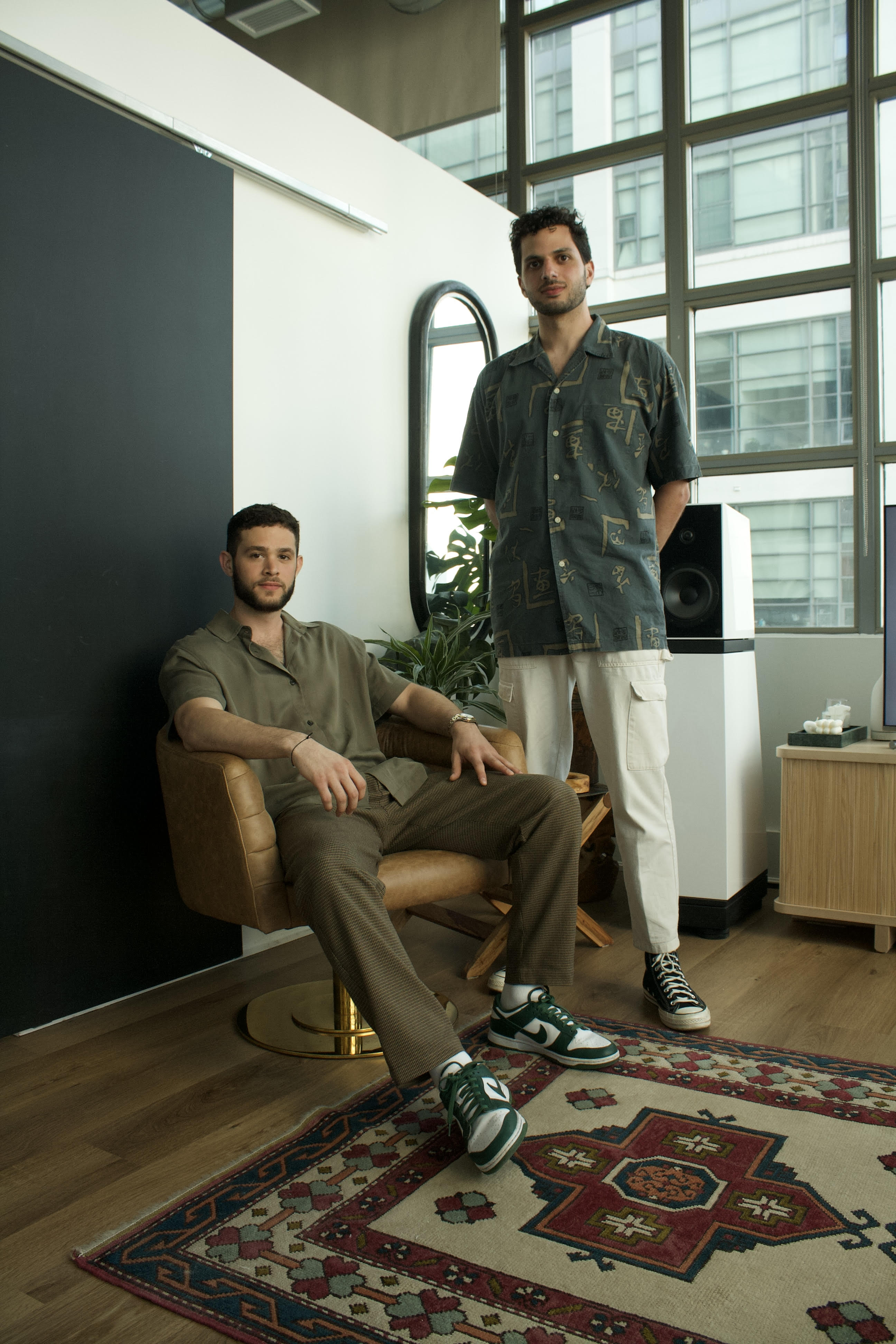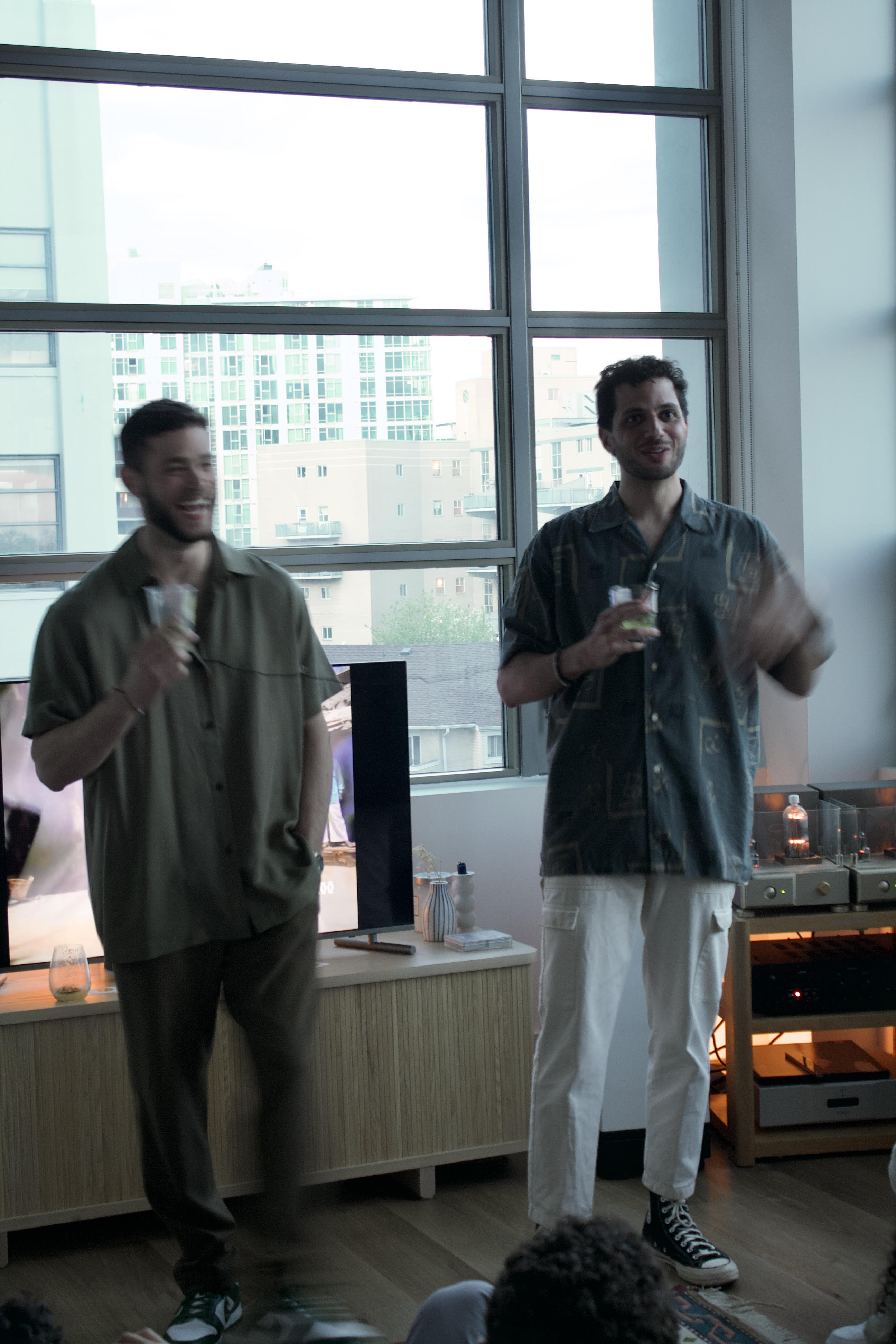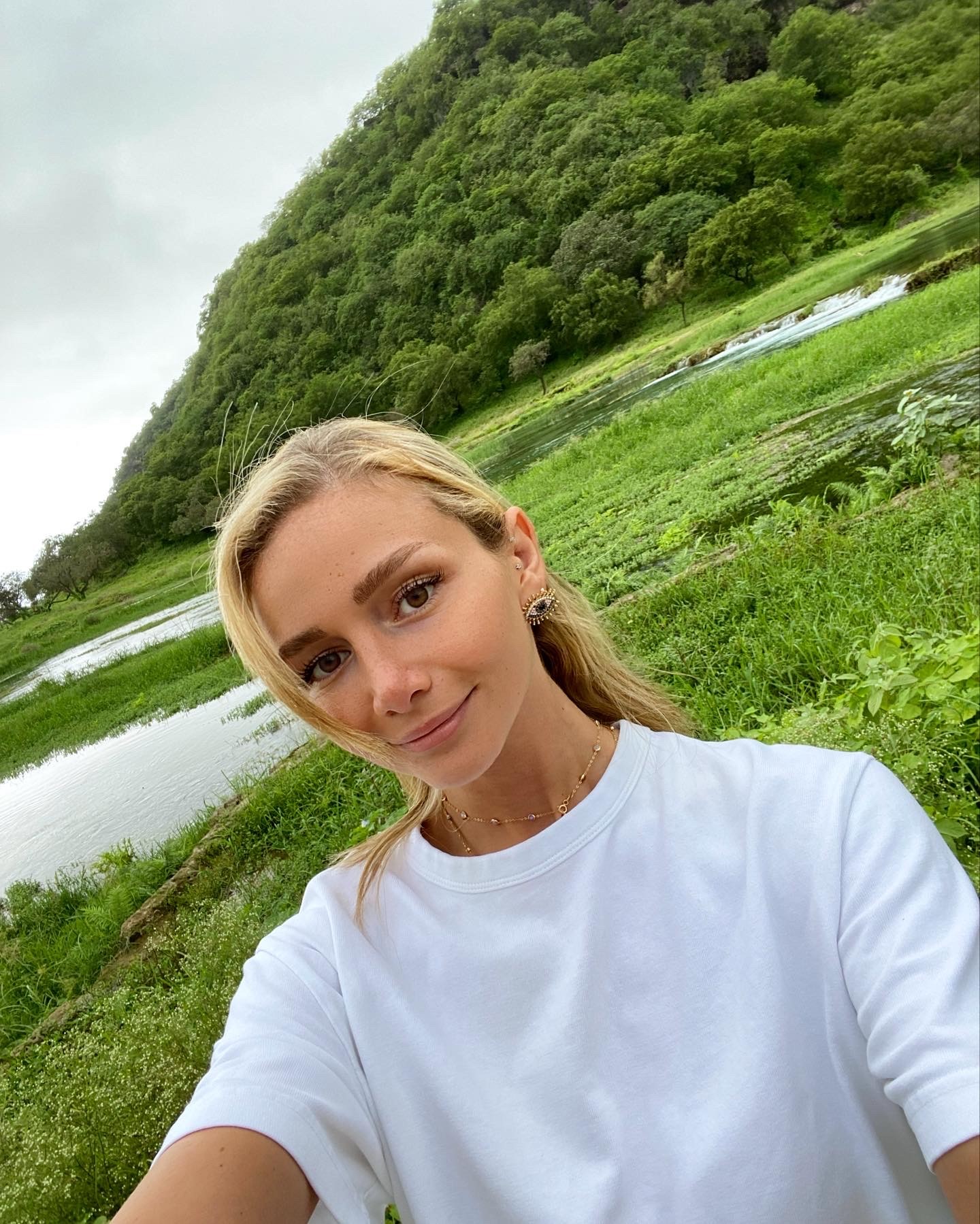Newsfeed
Making a name for yourself in the music industry is tough enough as it is, but for two Arabs living in Toronto, it’s even more difficult. Founders of BABL, Yezen Baban and Omar Habbal know this all too well, and yet seem confident in their future rise to musical stardom.

When chatting with Yezen and Omar while on vacation, I couldn’t help but notice the excitement and enthusiasm in their eyes. They may have been on holiday, but it was clear that they were counting down the days to return to their studio to produce more tracks. “We’ll start by kind of getting into the vibe, we’ll dim the lights, burn some incense, have a few drinks, get in the mood, just enough to get the creative juices flowing,” Omar shares of what a BABL recording session usually looks like, but it didn’t exactly start out that way.
BABL, named after the duo’s last names and after the ancient city of Babylon, began as a simple hobby and a passion for music. “I was always passionate about music and decided I needed to explore it. I bought a MIDI, a beat pack and a drum machine, and I just started messing around with it during my last year of university,” shares Yezen. But to turn a simple passion or hobby into a potential career takes a lot more than experimentation. To his surprise, Yezen realised he may have discovered a hidden talent. When Omar first heard one of Yezen’s sample beats, he knew he had stumbled upon a potential pivotal moment for the both of their careers, and thus, BABL came to life.
In 2022, it’s rather easy to teach yourself anything with the help of YouTube tutorials or TikTok hacks, and it’s highly probable that you’ve also learnt something via the internet (even if it is just Gigi Hadid’s viral pasta recipe). But the commitment and dedication needed to produce original music, and actually make something out of it, all whilst having a full-time job, is something Yezen and Omar have undoubtedly mastered. “We’ve been producing for four years. The first three years were just him and I making music together before we go out to a party or something. We’d go over to his house, have a few drinks and make some music together. Those tracks are horrible. They’re the worst pieces of music ever,” Omar humbly admits. “But that’s how you learn. It’s practice.” After producing approximately 1000 tracks, the duo finally buckled down. “We decided that if we’re gonna do it, we have to do it now. This was our chance. Creating BABL was very organic, very natural. We both like the same styles of music. It’s been exciting. And there’s a lot more to come,” he shares cheekily.

“The biggest enemy of any artist is asking them to pigeonhole themselves in a genre,” says Omar. Whilst he may be right, I still had to ask. “I think if you were to put us in one category, it would be a little bit of funk, but with hip hop influence, I don’t know if there’s a genre like that yet.” One thing that fascinated me the most with BABL, is their affiliation with Arab legendary icons. “We also have a very strong background with Yezen from Iraq and Palestine, and myself from Lebanon and Syria. And you’ll see in some of our music, there are samples that we pull from old artists that inspire us from our culture. I think our music marries those two influences very closely.” Growing up in the Middle East means that classic Arabic music was a staple in your home. For me, it was always Abdelhalim Hafiz, Fairouz and Umm Kulthum; voices that were also apparent in Yezen’s childhood, “My mother and her family were always playing Arabic music in the house. My favourites were Umm Kulthum and Fairouz for sure. But today, we realise there is a lot of other talented Arabs making music who we also love to draw inspiration from.”
In BABL’s latest release, “Rings for Sale,” the producers sampled an iconic Fairouz song, “Habaytak Bel Saif.” “That track itself encapsulates what BABL is. It’s a track that has Fairouz with a lot of disco and funk elements into it with electronic inspiration. There’s a bit of breakbeat in there, which is more of our hip-hop side,” Omar states. Classic Arabic music has inspired several international award-winning artists over the years. Beyoncé’s “Naughty Girl” clearly sampled – we’ll leave it to you to decide if it was borrowed or stolen – the instrumental behind Umm Kulthoum’s “Enta Omri.” Whilst the topic of artists being inspired from each other has always been a subjective one, BABL leaves out any subjectivity when it comes to their admiration for ‘Auntie Fairouz.’
One of the most interesting things about BABL is their approach to releasing music. “When we decided that we wanted other people to hear our music and really get it out there, we created our BABL account on Instagram and started something called BABL Sundays. It was good for us because it meant we had a weekly deadline to drop a new track every Sunday. We did that for a full year. That helped us grow so much and we really made a community that loved our music,” shares Yezen. The duo have also worked with several artists not only from the Middle East, but from around the world, to create illustrations and artwork for their tracks. Taking something as simple as music and art and turning it into a hub for creatives to get together and collaborate is something that seems meaningful to the duo.
“Although we did sample Fairouz’s track, it’s more of a homage to her, we’re not trying to pull from her. We’re just introducing her art to a new kind of world and new audiences. The intention behind it was to kind of take Fairouz into a different environment, throw her into disco, and see how Fairouz will perform in there,” says Omar. “It comes out of a place of appreciation and respect and it just worked,” Yezen adds. “She has a very passionate strong voice, so it really comes through in the music as well. So lots of respect for Auntie Fairouz, I love her.”
With two official tracks already released, “Rings for Sale” and “Soul Thought,” Yezen and Omar shared an exclusive sneak-peak of what we should be expecting next. “Through the power of TikTok, we connected with an artist we thought was really paving his path well, not just by holding onto his culture but also bringing in elements to different genres. His name is Saint Levant,” Omar finally admits. Marwan Abdelhamid, better known for his stage name Saint Levant, is an artist and rapper from a cocktail of backgrounds. The partly Palestinian musician was born in Gaza, and he’s used his music to shed light on the Palestinian plight to his largely international audience. “He came to Toronto because he had a show and we ended up having two studio sessions together, and we immediately connected, we clicked. It was him and his producer and we were jamming out. Saint Levant is more hip-hop focused and leading towards some drill and trap, whereas we are on the funk side. So it was a very interesting dynamic. We created a track and Marwan added some vocals to it. It’s an incredible track. I have it in my pocket right now but you can’t hear it,” he teases me.
With their dynamic relationship and undeniable taste for sound, it’s safe to say that this is only the beginning of a long journey for Yezen and Omar. By bringing Fairouz to disco, colliding funk with hip-hop, and putting the Arab world on the musical map, we’re excited for what’s to come for BABL.









